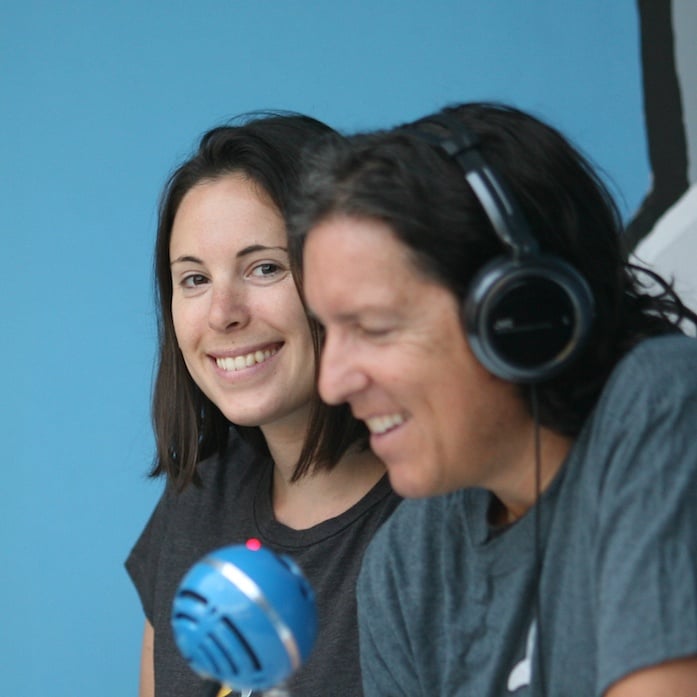 |
|
Joshua Zerkel Director of Worldwide Account Management and Training |
Today's guest is Joshua Zerkel, Director of Worldwide Account Management and Training at Evernote and founder and CEO of Custom Living Solutions, one of the Bay Area’s premier productivity and organizing consulting firms. At Evernote, Joshua leads a global team and oversees all onboarding, training, retention, and customer success programs for new and existing Evernote business customers. Listen to learn how to help your company, your team and your customers to become more productive.
In this episode, we cover:
- How to help people become more productive in business teams and in our personal lives.
- What is a productivity consultant and how can hiring one change your life?
- Why being productive and organized doesn't come naturally to most people.
- How to find tech tools to support you and your teams in your daily workflow.
- The number one thing most people aren't doing in Evernote that they should.
When it comes to organization for personal productivity, use whatever methodology works.
- There's no off-the-shelf system that works for everyone. We all work and think differently and need to piece together what will work for us.
Some teams can use off-the-shelf solutions. Some can't or won't.
- There can be buy-in if you use an authoritative approach.
- Sometimes teams come together wanting an off-the-shelf solutions.
Certified Professional Organizers are certified to help you become your best self and team.
- Understanding how different teams think and work is crucial.
Evernote doesn't have hidden features, but the hidden part is how to put features together to make a workflow for yourself.
- Find different elements that work for you (ex/ customizing different elements in the sidebar so it works for your needs, or use tags).
- Gems hidden in plain site may be something your product needs to address, too.
Help customers figure out which features will help them accomplish what they need.
- Josh suggests creating videos, how-to guides, and content that help people figure out which features and workflows will help them achieve their goals with what they need to accomplish.
What aren't people doing in Evernote that they should?
- For example, people should clip things from the web. One of Evernote's core functions is a snapshot of a page in time. You can clip things from the web permanantly so you can annotate, highlight, collect info for projects, collect a timeline, etc.
One person can be the catalyst for change in business teams.
- When someone signs up for Evernote business, it's because 1-2 people are powerful or passionate Evernote users and bring it to their team.
- There can be one person who's a catalyst to bring change to their organization.
A typical day for Joshua customer team helping customers: Taking a consultative "helping sells" approach.
- Evernote uses remote, modular trainings for new customers. It's consultative but remote.
- Helping customers determine goals to use Evernote with a purpose, not just about clicking but what to accomplish and developing a workflow with them around their goals. Showing them specific features around their goals.
- Listening to customers and tailoring the solution to meet them is the name of the game.
While there is structured curriculum, it's tailored to the needs of each business.
- Teams spend 6-8 hours on deployment with businesses and then get to know companies to customize and tailor solutions. That's built in to their training.
How do you measure success at Evernote?
- Customer satisfaction surveys at baseline and later intervals.
- Are they using the tool?
- How many people in the account are actually using the tool?
- Are they retaining or churning out seats?
- We also check to see if qualitative, stated goals are being met.
Helping increases all of the measures we want.
- Retention, account usage, deep usage...these are all things that Evernote's training helps achieve with customers.
- Think about the customer perspective in putting together training. Not just what features do people need to be taught, but education.
Product may be excited about features, but education is more excited about what customers can do with features if it's the right fit.
- Find the balance between the two. It's the tension when you work in a product company.
What do you do if your product isn't something you absolutely have to use?
- We all want to know more, amass more knowledge base of recipes at home, or to-do lists, or drafts of projects and blog posts at work. You can have it in paper and electronic format, but at the end of the day it's hard to know where all of those went.
- Having knowledge at our fingertips is important. It's not about replacing things your'e doing but enhancing it.
Any time you decide to try or adopt a new tool, internal change management is critical.
- This requires time, energy and commitment, so make it as easy as possible for your customers to change their habits.
- There are always customers who are resistant. Focus on bright spots: You can help them with finding one use case to slowly onboard them into your tool. Find alternatives that will get people warmed up to being onboard. It's rare to find someone adamantly against something who will suddenly do it. It's a warming up process.
Outside of the Valley, we may tend to assume people are just like us. Don't.
- If you're an educator, you have to understand the makeup of your audience wherever you go, including that they may not be familiar with what you do and the company that you come from.
- Understand their businesses, groups, teams, and what their pain points and concerns are.
- Understand the nature of their industry, the dynamic of their team (is everyone excited about it or is it being foisted upon them?) This should impact your approach.
Be willing to go off-script.
- Trainers need to get base-level understanding and be willing to go off-script.
- If people walk out and feel it's a waste of time, we haven't done our jobs well. Even in the middle of a presentation get feedback. How is this landing for you? Thumbs up, middle or down.
- Your audience doesn't know what you haven't told them, so be willing to go off-script.
Evernote at Work
- Want to be an Evernote genius? You can use Evernote to manage customers, work with your team on project, and so much more. Joshua's book can help.
- Recommended reading: Evernote at Work: The Ultimate Guide to Implementing Evernote In Your Business.
About Joshua Zerkel
Joshua Zerkel is Director of Worldwide Account Management and Training at Evernote and founder and CEO of Custom Living Solutions, one of the Bay Area’s premier productivity and organizing consulting firms. At Evernote, Joshua leads a global team and oversees all onboarding, training, retention, and customer success programs for new and existing Evernote business customers. Before officially joining Evernote, he was the very first Evernote Ambassador, where he built an extensive online and offline community of productivity enthusiasts and helped shape the overall Ambassador Program. Joshua is also one of the world's first Certified Professional Organizers® and I've spent over twelve years helping individuals and businesses use technology to enhance workflows and communication, and to get control of their workspace, information and time to boost overall productivity and effectiveness. An experienced media spokesperson, he has been featured on notable news outlets including NPR, CBS News, ABC News, and the San Francisco Chronicle. He is the author of the book Evernote at Work: The Ultimate Guide to Implementing Evernote In Your Business.
About Evernote
Evernote builds apps and products that are defining the way individuals and teams work today.




